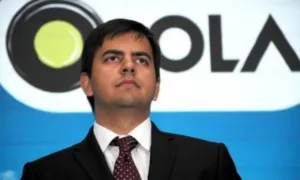Stirring Controversy: The Tale of Mehul Prajapati’s “Free Food” Video

In a recent social media saga, Mehul Prajapati, an individual of Indian descent residing in Canada, found himself embroiled in controversy over a video showcasing his utilization of free food resources meant for students. The viral footage sparked a heated debate, drawing attention to the ethics of availing oneself of charitable resources while holding a lucrative job.
Initially hailed as a culprit by online critics, Prajapati faced accusations of exploiting food banks despite his purportedly high-paying position as a data scientist at TD Bank. The video, which showcased Prajapati gleefully acquiring groceries from charitable organizations designated for disadvantaged individuals, incited widespread condemnation.
Social media platforms buzzed with outrage as users scrutinized Prajapati’s actions, questioning the integrity of his moral compass. One user, under the handle @Slatzism, led the charge, denouncing Prajapati’s purported employment at TD Bank, where the average annual salary reportedly reached a staggering $98,000.
The narrative took a twist when Prajapati’s family members intervened, asserting his status as a student without employment. They clarified that his tenure at TD Bank had been limited to an internship, which concluded in the previous year. Despite these claims, the firm itself issued a statement distancing from the controversy, affirming Prajapati’s departure from their ranks.
The tale of Mehul Prajapati on Social media
In the wake of this revelation, the social media sphere erupted with renewed fervor, amplifying the discourse on privilege and ethical responsibility. Users grappled with the implications of Prajapati’s actions, debating the boundaries of entitlement and altruism in a society marked by economic disparity.
The controversy underscored deeper societal tensions, shedding light on the complex interplay between personal conduct and social obligation. Prajapati’s video, intended as a tutorial on frugal living, inadvertently exposed the fault lines of socioeconomic inequality, prompting introspection among viewers.
Amidst the uproar, Prajapati’s narrative emerged as a cautionary tale, serving as a catalyst for broader discussions on systemic inequities and the ethical dilemmas of affluence. The episode served as a stark reminder of the moral complexities inherent in navigating the intersections of privilege and poverty.
As the dust settled, the saga of Mehul Prajapati resonated as a parable of our times, challenging viewers to confront uncomfortable truths about the distribution of resources in an unequal world. In the age of viral outrage and digital accountability, Prajapati’s journey served as a poignant reminder of the power of social media to amplify voices, hold individuals to account, and catalyze collective introspection.
In the aftermath of the social media storm, voices emerged from various quarters, offering nuanced perspectives on the complexities of Prajapati’s situation. Some defended his actions, citing the rising cost of living and the challenges faced by students in making ends meet. Others condemned him unequivocally, decrying what they perceived as a flagrant abuse of resources intended for the most vulnerable members of society.
The discourse extended beyond the confines of Prajapati’s individual circumstances, touching on broader issues of systemic inequality and access to essential services. Questions arose about the adequacy of existing support structures for marginalized communities and the need for greater transparency and accountability in charitable distribution networks.
Amidst the cacophony of opinions, Prajapati himself remained largely silent, his online presence dwindling in the face of relentless scrutiny. Yet, his story continued to reverberate across digital platforms, serving as a cautionary tale for those tempted to tread the thin line between thriftiness and exploitation.
As the spotlight shifted to other headlines, the legacy of the “Free Food” video endured as a poignant reminder of the enduring power of social media to shape public discourse and hold individuals to account. It served as a catalyst for introspection, prompting individuals to reevaluate their own attitudes towards privilege, charity, and social responsibility.
Rohit Saraf role in Dear jindagi
In the corridors of power, policymakers took note of the controversy, pledging to review existing regulations governing the operation of food banks and charitable organizations. Calls for greater oversight and accountability gained traction, signaling a potential shift towards a more equitable distribution of resources in the future.
Meanwhile, grassroots activists seized upon the momentum generated by the controversy to advocate for systemic change. Campaigns were launched to raise awareness about the plight of low-income students and the challenges they face in accessing basic necessities. Community-led initiatives sprang up, offering support and solidarity to those in need.
Jasmin Bhasin TV shows and movies
As the dust settled and the furor subsided, one thing remained clear: the saga of Mehul Prajapati and his “Free Food” video had left an indelible mark on the collective consciousness. It had sparked difficult conversations, prompted soul-searching, and ultimately, served as a catalyst for positive change.
In the annals of social media history, the tale of Mehul Prajapati would be remembered not only as a cautionary tale but as a rallying cry for a more just and compassionate society. And as the digital landscape continued to evolve, his story would serve as a reminder of the enduring power of individual actions to shape the course of history.
In the final analysis, the controversy surrounding Mehul Prajapati’s “Free Food” video transcended mere sensationalism, offering a profound reflection on the moral imperatives of a global society grappling with the enduring specter of poverty amidst plenty.




